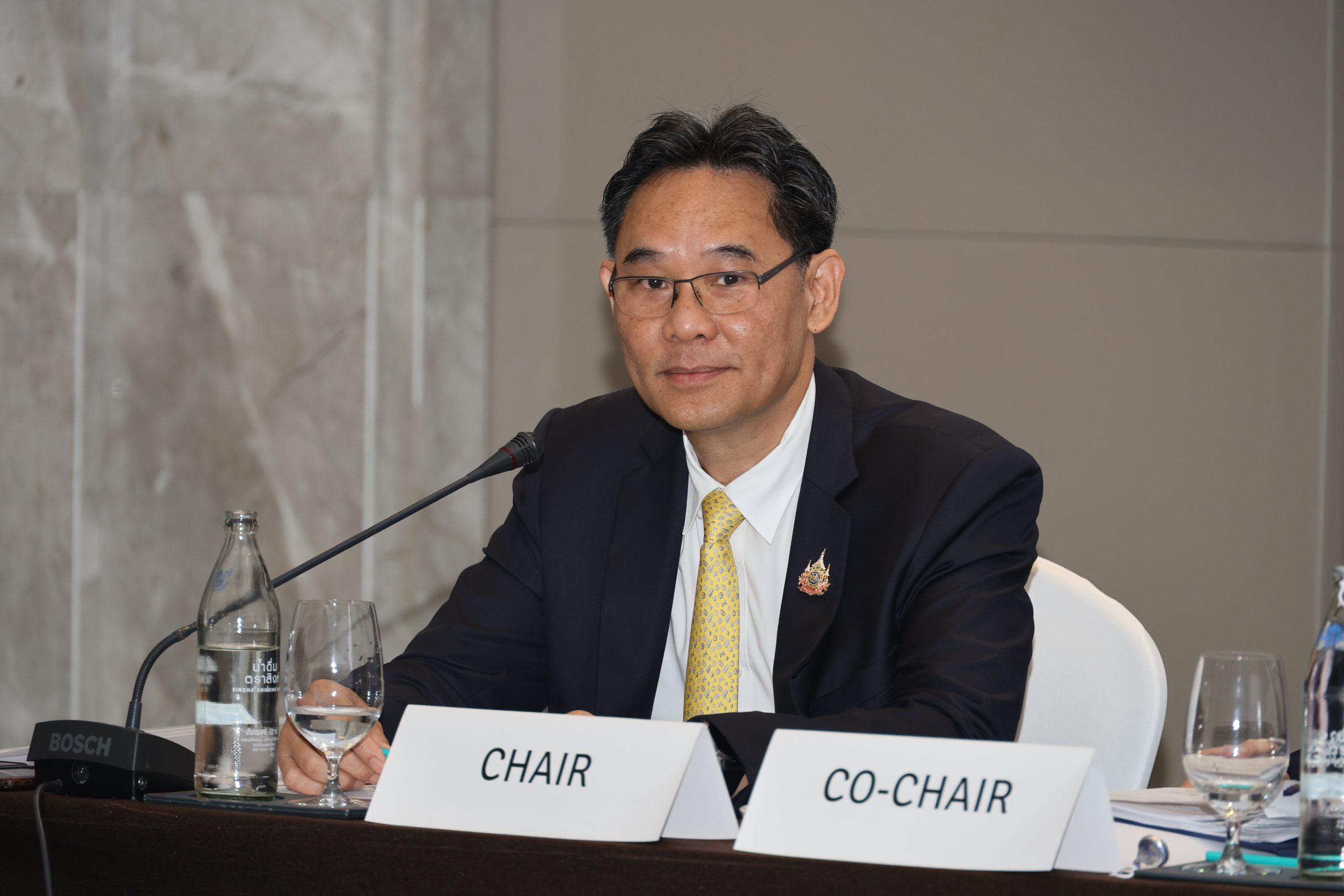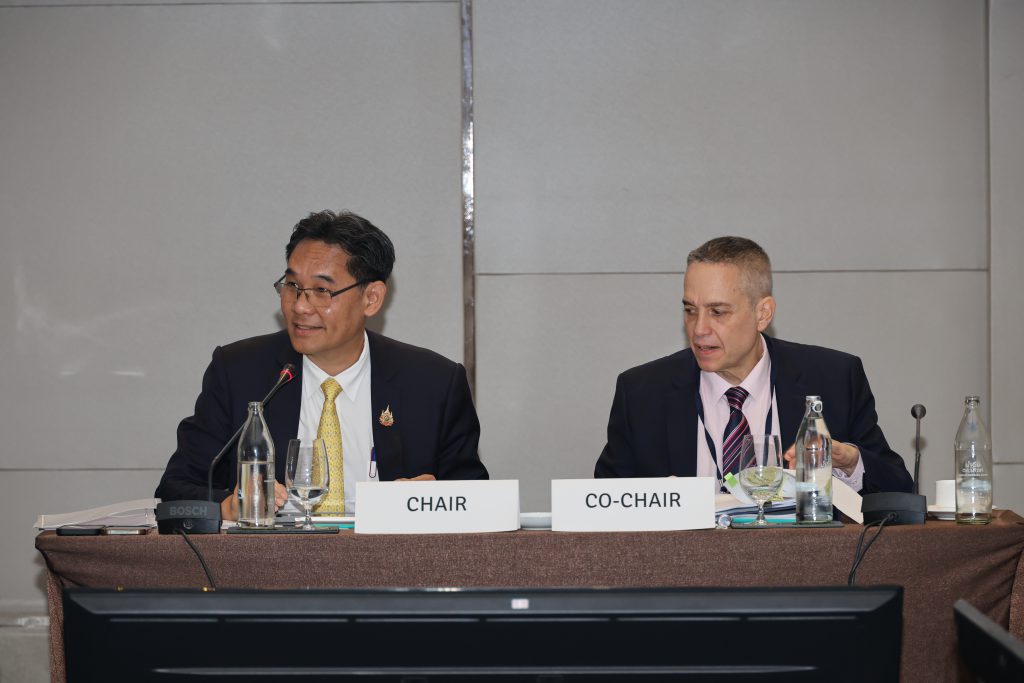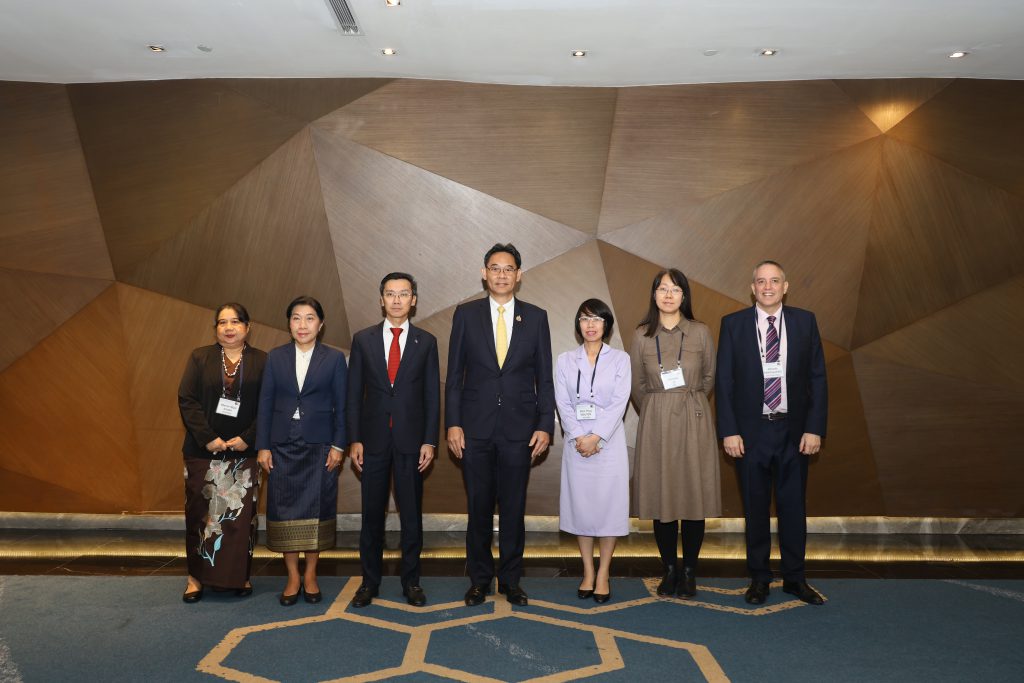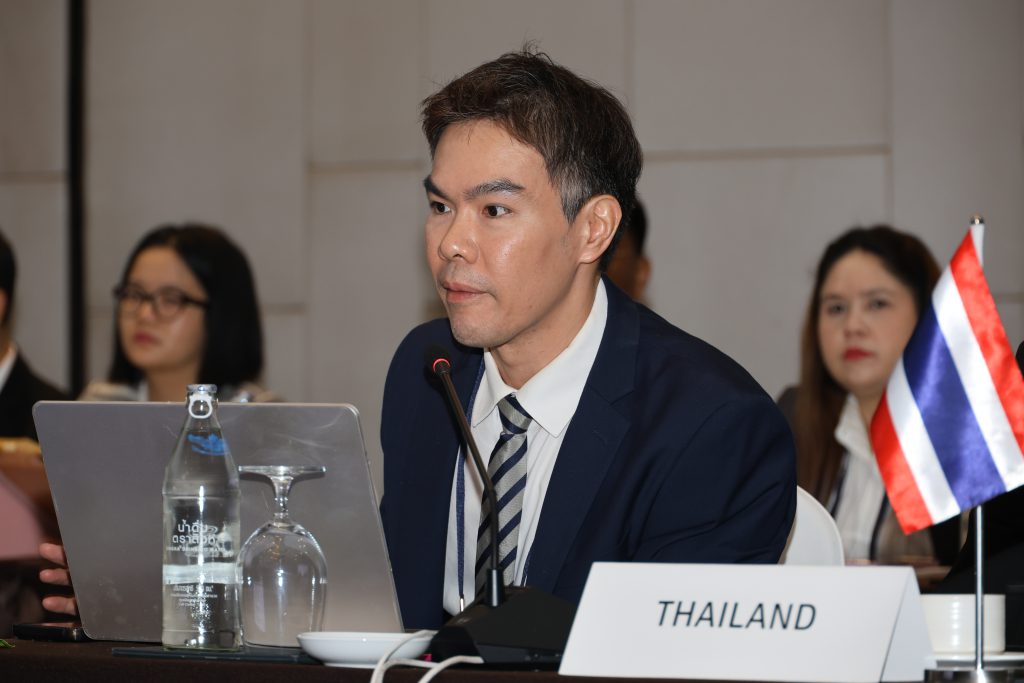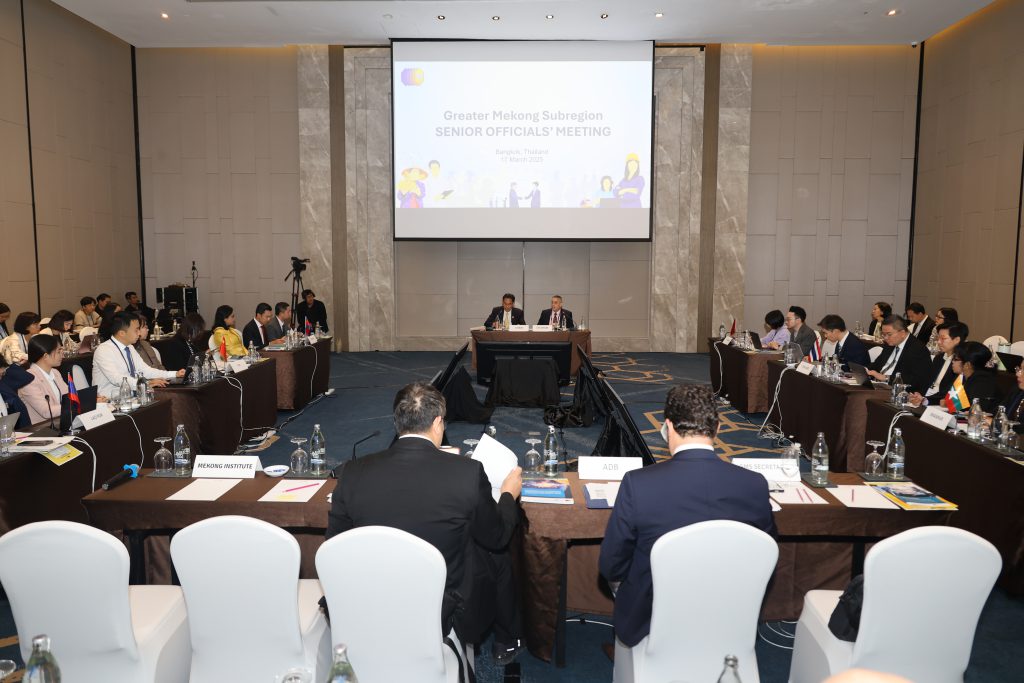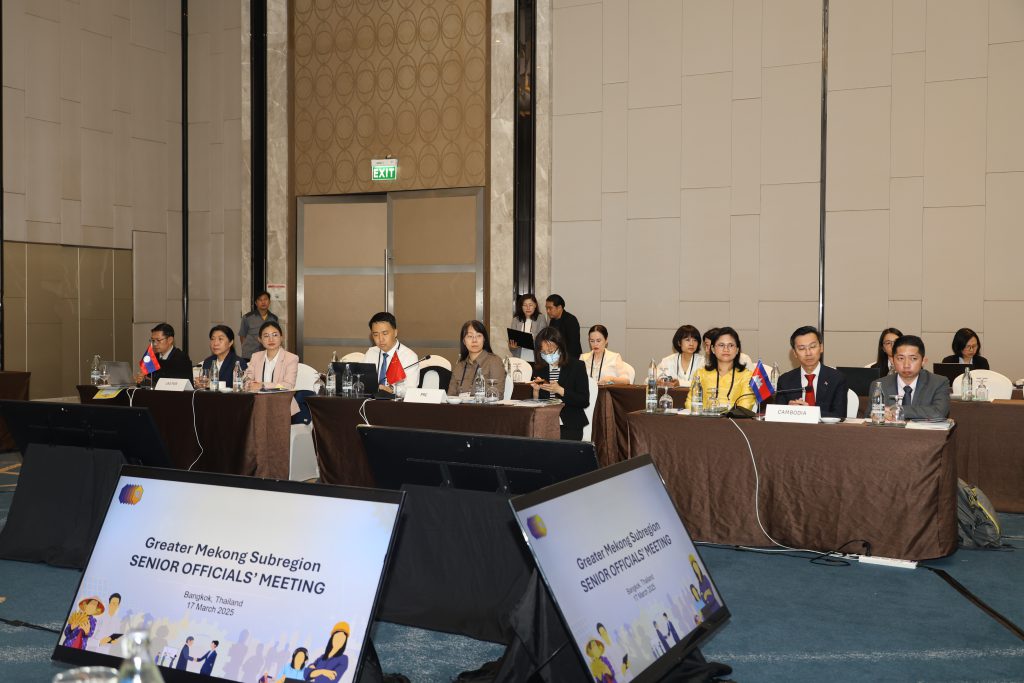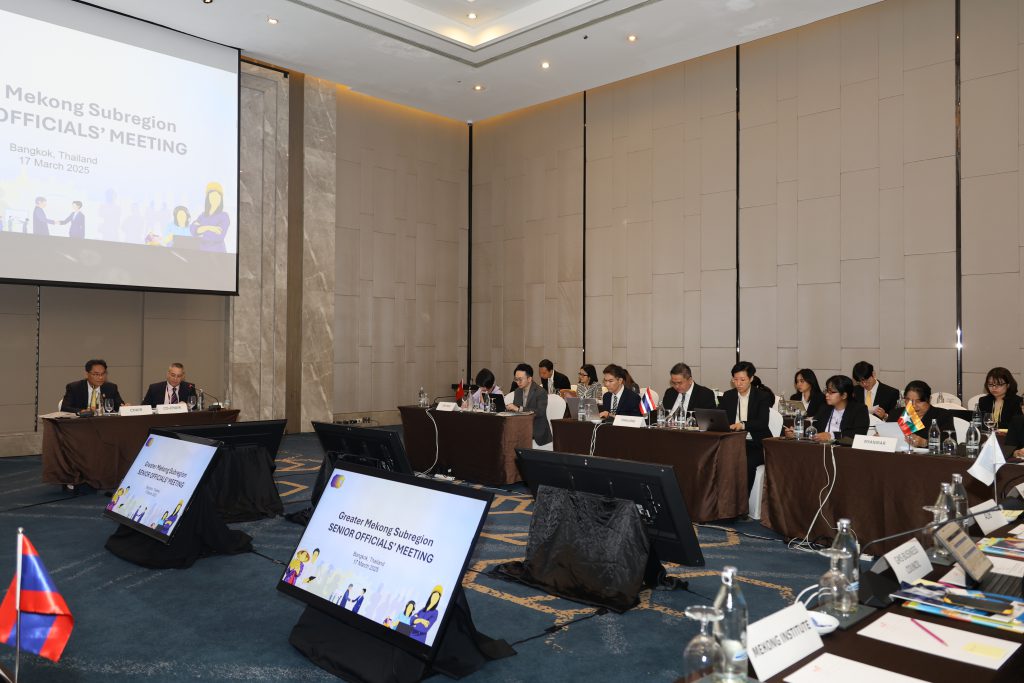On March 17, 2025, the Office of the National Economic and Social Development Council, in collaboration with the Asian Development Bank (ADB), organized the 1st Senior Officials Meeting 2025 Greater Mekong Subregion Economic Cooperation Program (GMS) at Amari Hotel Bangkok, with Mr. Danucha Pichayanan, Secretary-General of the National Economic and Social Development Council, serving as Thailand’s GMS Program Senior Official and chairing the meeting, and Mr. Alfredo Perdiguero, Director of the Southeast Asia Regional Cooperation and Operations Coordination Division, ADB, as co-chair. Senior officials from 5 Mekong countries participated, including Mr. Chov Heng, Deputy Secretary-General of the Committee for Cooperation for Development of Cambodia, Council for the Development of Cambodia, Kingdom of Cambodia; Ms. Li Hongna, Deputy Director-General of the Department of International Economic and Financial Cooperation, Ministry of Finance, People’s Republic of China; Ms. Sisomboun Ounavong, Director-General of the Department of International Cooperation, Ministry of Planning and Investment, Lao People’s Democratic Republic; Dr. Mala Myo Nyun Director-General of the Department of Foreign Economic Affairs, Ministry of Investment and Foreign Economic Relations, Republic of the Union of Myanmar; Ms. Nguyen Thi Bich Thuy, Deputy Director-General of the Department of Economic Diplomacy, Ministry of Foreign Affairs, Socialist Republic of Vietnam, along with representatives from the GMS Business Council and related agencies.
During this meeting, GMS Senior Officials discussed preparations for the 27th GMS Ministerial Meeting scheduled to be held in Thailand in December 2025, with key issues focusing on supporting participation from various sectors, particularly the private sector and local governments. They also considered organizing parallel activities such as joint meetings with local governments, development partner meetings, and the GMS Business Forum. The meeting approved in principle the organization of these parallel activities and proposed that ADB, as the GMS Program Secretariat, and the GMS Business Council jointly develop the meeting agenda and clarify the format of various related activities for further detailed consideration by the Senior Officials.
GMS Senior Officials also discussed substantive issues for the Ministerial Meeting, including various operational approaches such as the GMS Innovation Strategy for Development 2030, which will drive cooperation in connectivity, digital transformation, and green transition, with a task force being established to support these operations; the Digital Transformation Action Plan 2025-2027, starting with digital advancement in trade and investment, tourism, and agriculture through strategy development, training and skill development, pilot project development, and best practices formulation; and the Gender Equality Strategy 2025-2030, which is in the process of establishing a task force to develop approaches for ensuring equal participation and conducting mid-term reviews of the strategy’s implementation. The meeting also received updates on the progress of studies and preparation of various documents that may be considered for presentation to the Ministerial Meeting, including the Private Sector Engagement Strategy to support the role of the GMS Business Council and promote dialogue between public and private sectors; the Special Economic Zone Study for Accelerating Post-COVID-19 Recovery, a case study of the Thailand-Cambodia border special economic zone to develop strategic recommendations for supporting cross-border production networks; and Strategic Approaches to Enhance Local Government Participation in GMS to improve the effectiveness of local government participation mechanisms such as the Economic Corridor Forum (ECF), Governor Forum (GF), and additional skills training for local governments.
Additionally, the meeting received progress reports on sectoral operations of the GMS Program, including (1) Trade and Investment, which has been upgraded from a task force to a permanent working group and developed the GMS Cooperation Framework for Trade Document Digitalization and policy recommendations for developing harmonization of sanitary and phytosanitary measures; (2) Energy, which is developing the Energy Sector Strategy 2024-2030 to enhance energy connectivity, energy efficiency, energy conservation, and energy transition; (3) Health, which has developed the Health Cooperation Strategy 2024-2030 to promote regional health security through strengthening public health systems toward universal health coverage; and (4) Transport, which has developed the Transport Sector Strategy 2030, currently under mid-term review to consider progress, challenges, and regional and global development issues. For future operations, these include the ADB project to develop capacity for BIMP-EAGA, IMT-GT, and GMS officials (B.I.G Training Programme) on topics of mutual interest such as economic corridor development, blue economy, and green investment on May 5-9, 2025, in Bangkok, Thailand; the 3rd Meeting on Labor Mobility in the Greater Mekong Subregion in May 2025 in Luang Prabang, Lao PDR; the 14th Economic Corridor Forum in September 2025 in Siem Reap, Cambodia; andthe 27th GMS Ministerial Meeting in December 2025, which Thailand, through NESDC and the Ministry of Interior, is scheduled to co-host.
*****************************************************************************************
Strategy and International Cooperation Coordination Division
Office of the National Economic and Social Development Council
